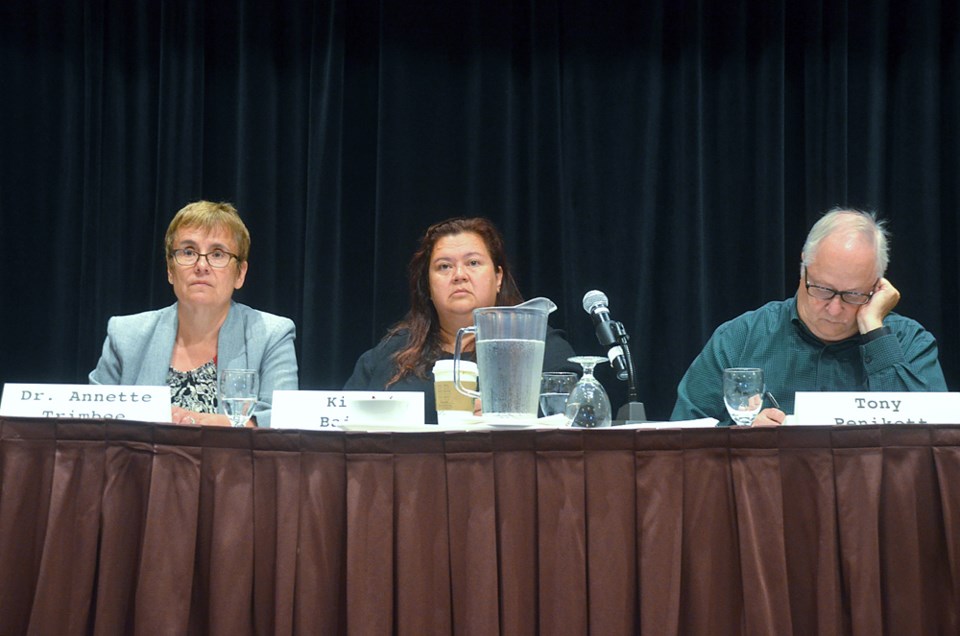The pipeline panellist at the centre of conflict-of-interest allegations defended her post yesterday.
Kim Baird, one of three appointees to a ministerial panel gathering community feedback on the Kinder Morgan pipeline, said the conflict issue was “old news.”
“I raised it before I was appointed, and the minister (of natural resources) was not concerned about that leadership exchange so many years ago,” Baird told the NOW at the final session of community consultations in Burnaby on Thursday.
The leadership exchange was part of an SFU program where Baird was partnered with Ian Anderson, president of Kinder Morgan Canada, in 2010. The two switched places to gain a better understanding of business and First Nations issues.
Burnaby Mayor Derek Corrigan raised the conflict-of-interest issue on the first day of Burnaby consultations, but Baird doesn’t see a problem.
“I really don’t think it will impact my ability to record what I hear and report that to the minister,” Baird told the NOW.
As for the panel hearings, Baird said she’s heard a lot of concerns about climate change, oil spills, bitumen properties, impacts to landowners and lack of adequate consultation with First Nations.
“In our view, the fact that the terms of reference (for the NEB pipeline review) did not include climate change is something we will bring to the minister’s attention. That process wasn’t designed to deal with that or the other things that people have raised,” Baird said.
The pipeline’s potential impacts in Burnaby are quite different, as the terminus is here, Baird said.
“The residents themselves and the numbers (that have) come just show how concerned they are about the project. That’s different from other areas we’ve seen so far,” she said.
The Burnaby panel sessions ended Thursday evening with more than 40 speakers. The panellists are visiting communities along the pipeline and marine shipping route. So far, t hey’ve covered territory from Calgary to Burnaby, and they’ve received more than 16,000 online submissions – both surveys and comments. Up next are Vancouver, North Vancouver and Victoria.
The panel will compile a report for the federal government by November. Cabinet’s final pipeline decision is due in December.



